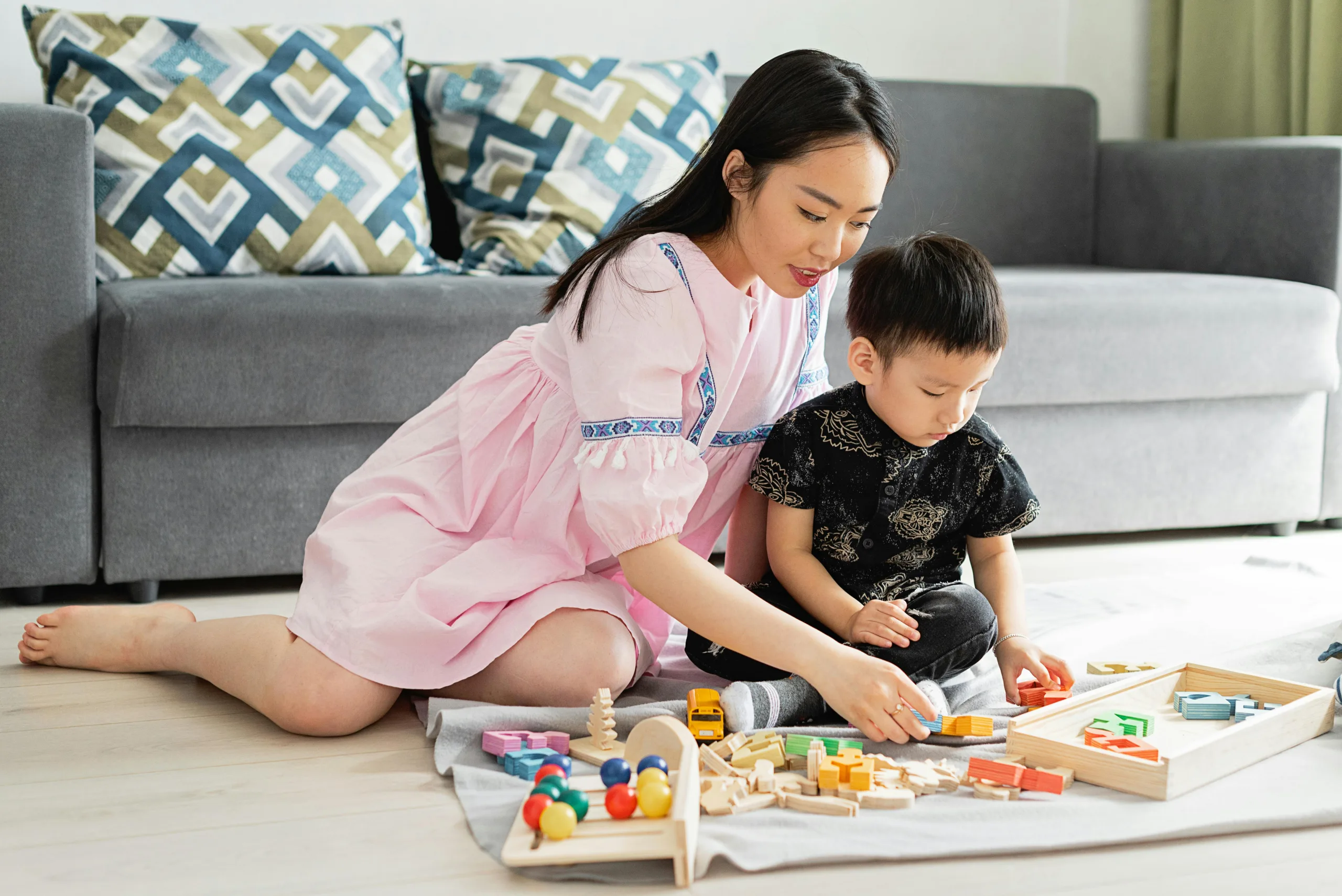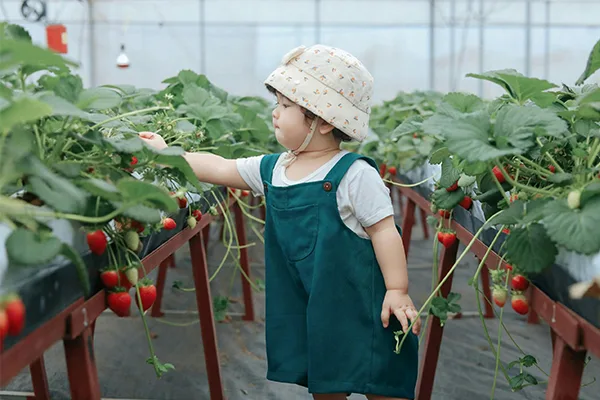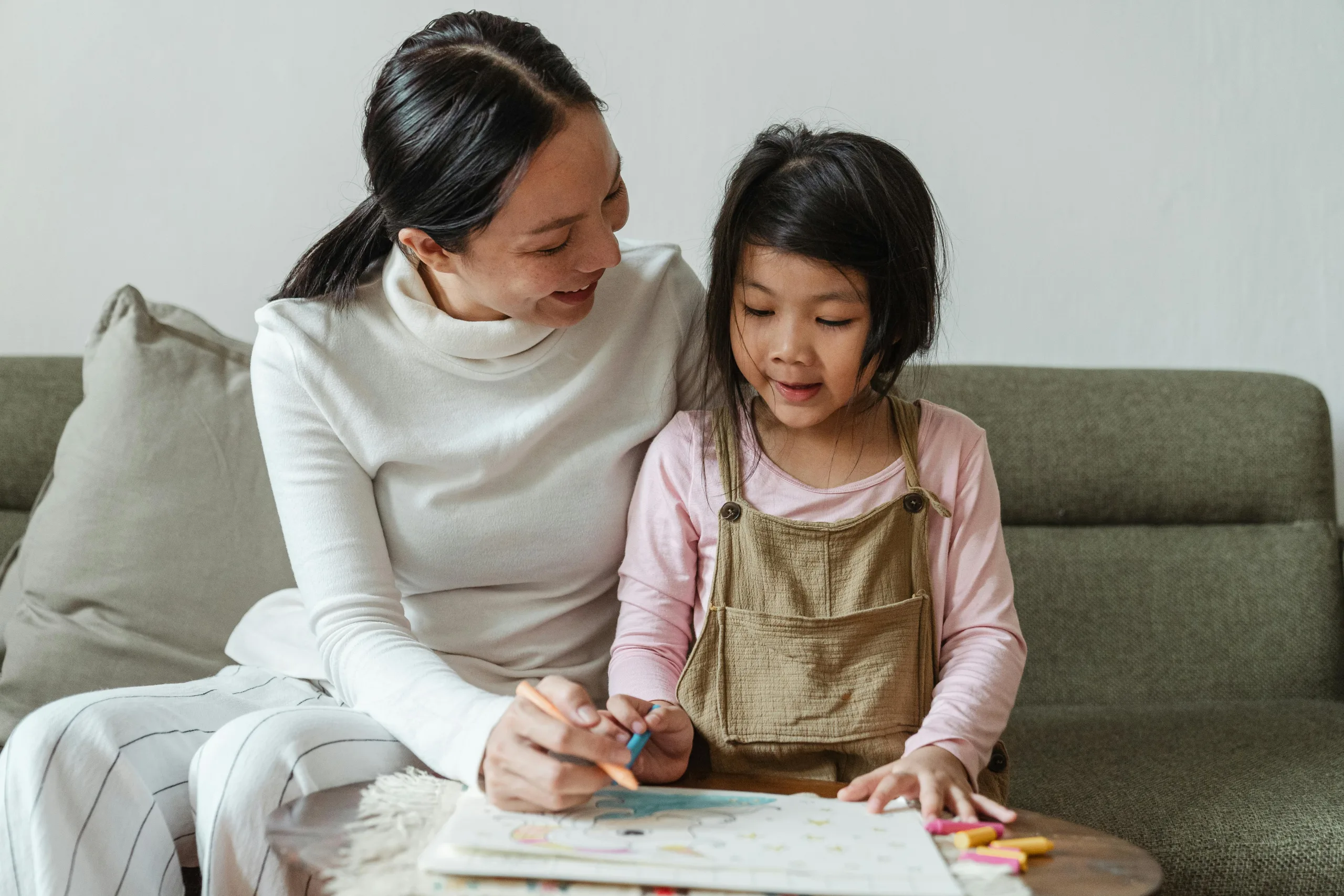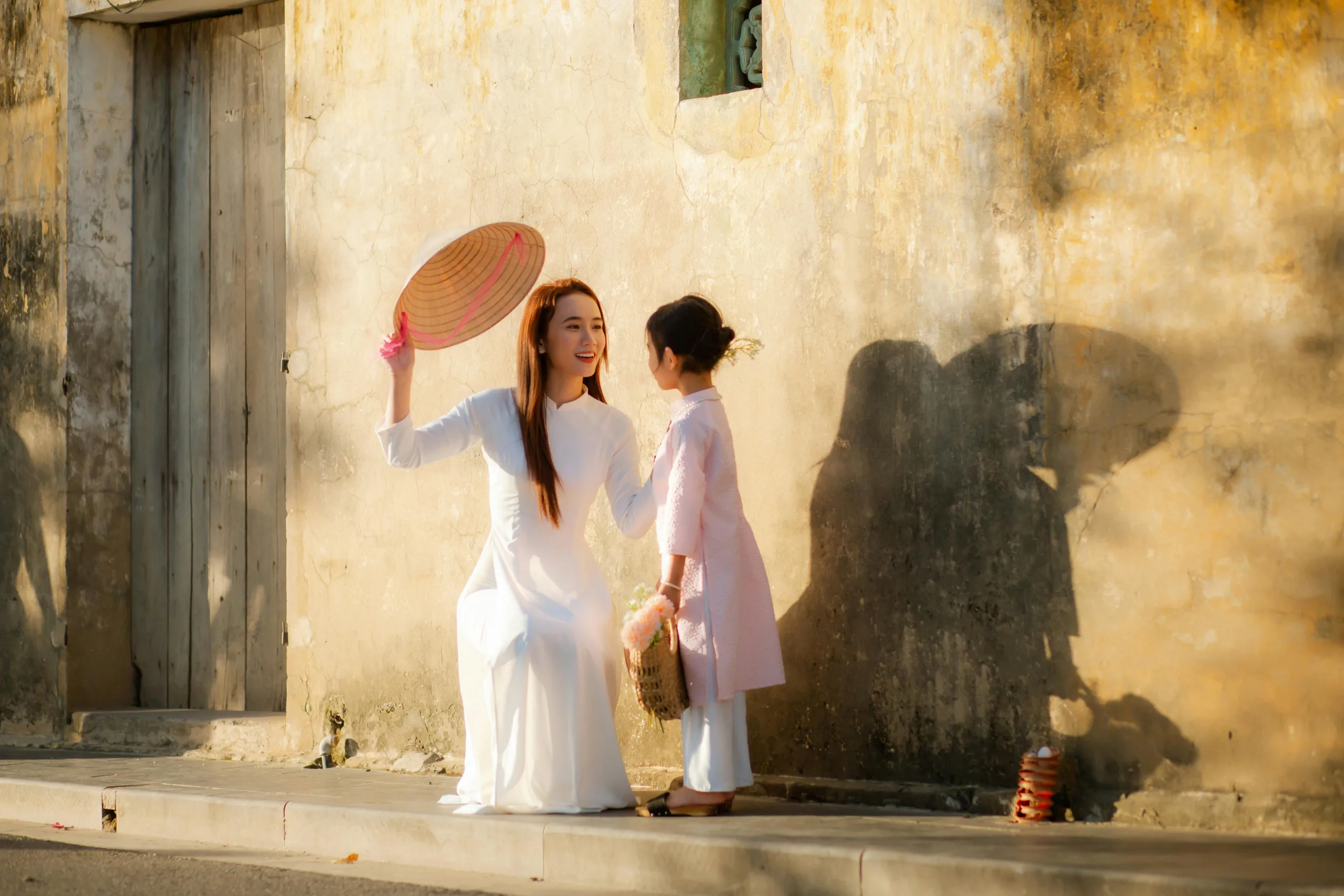Family is at the heart of Vietnam’s cultural identity. Childcare is seen as an extension of family values and is embraced as a vital part of life at home and within the community.
When you hire a Vietnamese Au Pair, you’ll likely observe them integrating these family values into their work by nurturing respect for elders or highlighting education as the pathway to personal and familial success, for example.
The more you explore Vietnamese customs and traditions, the more you’ll appreciate how these values inspire your Au Pair’s heartfelt care and tireless efforts to help your child grow, learn, and flourish. That’s why we’ve put together a detailed guide to help you connect with and support your Vietnamese Au Pair—ensuring a rewarding experience for everyone involved.
What Vietnamese Au Pairs Value Most in Host Families
Every successful hiring experience starts with respect—and it has to be mutual. While your Au Pair is getting to know your family’s daily rhythms and rules, you should also be ensuring they feel respected and supported. A welcoming environment will help them thrive, making the experience enriching for everyone involved.
Here are a Few Key Traits Host Families Should Foster:
- Open communication and clear expectations.
- Vietnamese childcare emphasizes structure and guidance, and your Au Pair will likely want to meet your expectations by following your family’s routines and rules. Clear, open communication is key to helping them succeed—express your needs and goals, and they’ll be better equipped to provide exceptional care.
- Example: If your children have a busy extracurricular schedule, it’s best to share a calendar with your Au Pair and communicate what’s required when preparing for each activity. Will your child need fresh gym clothes? Snacks? Their musical instrument? Be sure to communicate all the details!
- Vietnamese childcare emphasizes structure and guidance, and your Au Pair will likely want to meet your expectations by following your family’s routines and rules. Clear, open communication is key to helping them succeed—express your needs and goals, and they’ll be better equipped to provide exceptional care.
- Being treated as part of the family.
- Vietnamese people are deeply communal, often sharing homes with family, working closely with their community, and celebrating together. Adjusting to a new environment can feel isolating for Vietnamese Au Pairs, so inviting them to join your social events, get-togethers, or family game nights can make a big difference in helping them feel connected.
- Example: Remember that many of the activities we take for granted as Americans are still brand new to your Au Pair. Are you planning to carve a pumpkin for Halloween? Do you host an annual Superbowl party? Are you running to Starbucks for a coffee? These are all things your Au Pair probably hasn’t experienced before! Why not invite them along and encourage new experiences?
- Vietnamese people are deeply communal, often sharing homes with family, working closely with their community, and celebrating together. Adjusting to a new environment can feel isolating for Vietnamese Au Pairs, so inviting them to join your social events, get-togethers, or family game nights can make a big difference in helping them feel connected.
- Genuine interest in their culture and background.
- Sharing childhood memories, traditions, and stories helps us build meaningful connections, especially with our children, by offering them a sense of history and understanding. But this experience can be even richer if you invite your Au Pair to share their own experiences too. It’s a great way to help them remain connected to their roots while they’re abroad—and it enriches your family’s learning journey!
- Example: Planning a family game night? Consider inviting your Au Pair to share a game from their childhood! It’s a fun way to create new memories and encourage bonding through lighthearted social interaction.

- Sharing childhood memories, traditions, and stories helps us build meaningful connections, especially with our children, by offering them a sense of history and understanding. But this experience can be even richer if you invite your Au Pair to share their own experiences too. It’s a great way to help them remain connected to their roots while they’re abroad—and it enriches your family’s learning journey!
Vietnamese Childcare: 5 Misconceptions About Vietnamese Au Pairs—and the Truth
It’s natural to have questions when embarking on a new journey. Many families considering hiring an Au Pair have reservations about the process or apprehensions about welcoming someone new into their family dynamics and daily activities. It’s all part of the experience!
The good news is that the more families learn about it, the easier it is to let go of these worries.
Here are few common misconceptions about Au Pairs and Vietnamese childcare practices:
Misconception #1: Cultural differences might create barriers.
The Truth: Everyone has unique qualities, but you’ll find plenty of common ground with your Vietnamese Au Pair if you stay open. It’s normal for both sides to feel a little nervous at first! Remember, they chose this role to enrich your children’s lives while embracing a new culture. It’s a wonderful chance for your family and your Au Pair to grow and learn together.
Misconception #2: Language barriers will make communication difficult.
The Truth: All our Au Pairs undergo a thorough screening process, including English competency assessments, to ensure they can navigate everyday conversations effectively. While their English may not be perfect, Vietnamese culture’s strong emphasis on education means your Au Pair will be motivated to improve. Their eagerness to practice and learn ensures continued progress over time!
Misconception #3: Vietnamese Au Pairs may feel uncomfortable sharing their culture.
The Truth: Vietnamese etiquette is often at the root of this misconception. Most Vietnamese people believe it’s important to maintain harmonious relationships, so they’ll go to great lengths to avoid conflict, confrontation, or overstepping boundaries. If your Au Pair seems more reserved or hesitant to open up, it’s likely because they want to be respectful and polite.
The best approach? Invite your Au Pair to share more by asking open-ended questions, like “What was your favorite meal as a child?” or “What do you miss most about home?”. By doing so, you’re guiding the conversation in a natural and considerate way, helping to preserve social harmony and prevent any sense of pressure or intrusion.
Misconception #4: They are primarily focused on childcare, not cultural exchange.
The Truth: Vietnamese people are deeply committed to fulfilling their responsibilities, often focusing intensely on their duties to meet expectations. This might mean they’re less likely to initiate personal conversations at first—but it’s not a sign of disinterest. As they feel welcomed and appreciated, they’ll open up more. Encourage this connection by asking your Au Pair to share their food, culture, and language—they’ll love introducing you to their heritage!
Misconception #5: They don’t understand child development or education.
The Truth: This is another false belief about Vietnamese childcare. Every Au Pair, including those from Vietnam, has a solid understanding of child development and a genuine love for working with kids.
At Go Au Pair, we require at least 1-2 years of childcare experience—whether it’s caring for siblings, assisting in schools, or supporting community programs—and prioritize candidates trained in CPR and basic first aid.
Most importantly, our Au Pairs are dedicated to growing as caregivers, constantly learning new educational techniques, exploring child development theories, and refining communication skills to provide the best care possible.
Tips for Bringing Vietnamese Childcare Practices Into Your Home
Create an inviting and positive environment for your Au Pair with these simple hospitality tips:
- Prepare their space with thoughtful touches.
- Warm gestures are a great way to start your Au Pair experience off on the right foot. You can leave a hand-written welcome note, for example, with the words “Cảm ơn”. (Thank you in Vietnamese!) You can also show gratitude with small gifts, like tea or flowers, which are sure to be appreciated.
- Involve your children.
- Au Pairs care deeply about making a good impression on you and your children. Involving little ones in the welcoming process provides an opportunity for connection and bonding. It also lets your children know the Au Pair’s arrival is cause for excitement and celebration, setting a positive tone.
- Set expectations early with schedules and clear rules.
- As we mentioned earlier, clear and proactive communication is key. The best way to prevent confusion is to have a sit-down conversation with your Au Pair during which you review your daily and weekly schedules, discuss morning and bedtime routines, and answer any questions.
- Participate in cultural celebrations.
- In America, we celebrate holidays like Christmas, Thanksgiving, and Easter, but many of these special holidays aren’t recognized in Vietnam. You can make your Au Pair feel extra welcome by expressing an interest in celebrating their traditional holidays. There’s the Vietnamese Lunar New Year, the Mid-Autumn Festival, and the Ghost Festival, among others!

- In America, we celebrate holidays like Christmas, Thanksgiving, and Easter, but many of these special holidays aren’t recognized in Vietnam. You can make your Au Pair feel extra welcome by expressing an interest in celebrating their traditional holidays. There’s the Vietnamese Lunar New Year, the Mid-Autumn Festival, and the Ghost Festival, among others!
Experience the Heart of Vietnamese Childcare in Your Home
Hiring an Au Pair isn’t just about getting help with childcare—it’s about bringing the world into your home in the most meaningful way. Your children will gain real-life perspectives and experiences that you just can’t get from a book, all while you enjoy the extra support you’ve been looking for. So, why wait? Take the time to explore our amazing Au Pairs and see if there’s someone who feels like the perfect fit for your family. Who knows? Hiring an Au Pair from Vietnam might just be the unique, enriching experience your family has been missing!





